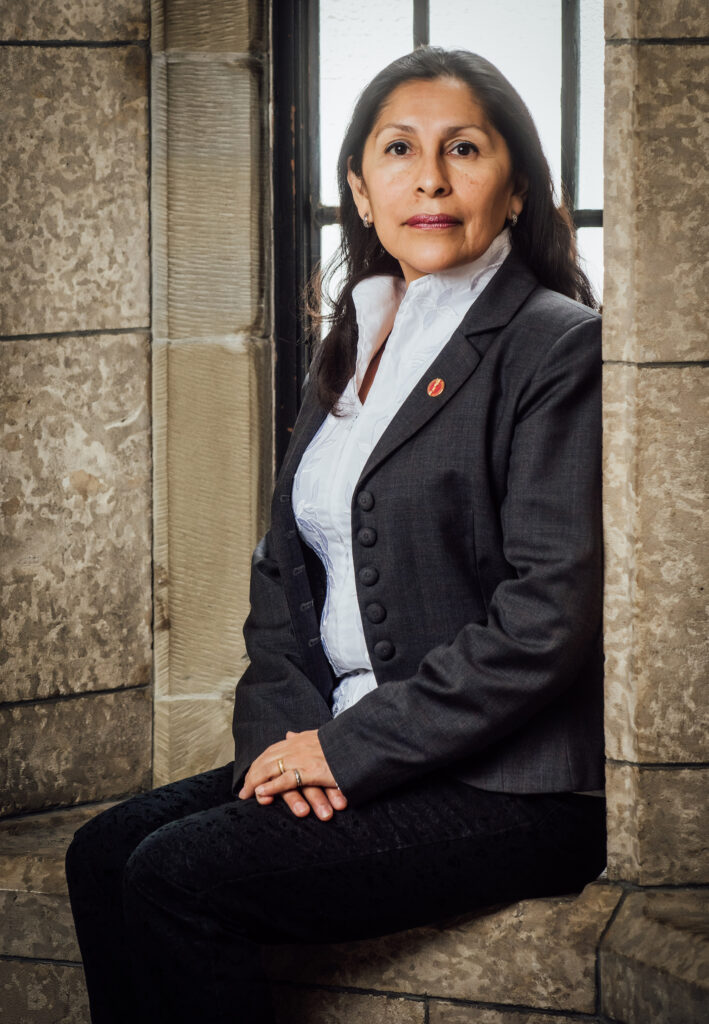We need a clean recovery to reset our economy

COVID-19 has proven the importance of response planning and prevention for minimizing human and economic loss – the dire consequences of our poor relationship with nature. We need to reset and revive the economy with an entirely new approach if we are to prosper in the long term. We are living through a historic moment; future generations in Canada and beyond will describe us either as visionary leaders who triggered a profound transformation or as individuals with primitive and selfish instincts who support a destructive system. It’s up to us to choose.
I have been studying the interface between humans and the environment since the 1980s, first as a PhD student at McGill, then as a professor at Laval University, an engineering consultant, and then finally as a Canadian Senator. In this most recent role lies a unique opportunity and responsibility to influence the direction of our great country, yet the institution and its members also present some of the greatest barriers to that very progress. Since the beginning of the pandemic, the Senate has been bogged down by political disagreements and what seems to be a lack of interest by some in our important work. Despite the scale of this opportunity to build forward better, there has been no study concerning the recovery among the very few committees that have been given permission or resources to meet; instead, they have chosen to focus on comprehensive studies of the pandemic’s impacts on Canada’s social and economic fabric.
As a result, I undertook my own study of the uneven impacts of the pandemic and how a clean and just recovery can help the economy rebound while meaningfully contributing towards social and environmental wellbeing. The report, Building Forward Better: A Clean and Just Recovery from the COVID-19 Pandemic, draws inspiration from over 150 civil society observations and proposals, and progressive governments around the world to identify and recommends solutions and a set of key policies that should guide Canada’s recovery for the months and years to come. As the IISD report Investing for Tomorrow, Today clearly demonstrates, the 2021 budget presents an important opportunity to invest for a sustainable future.
Countries in Europe and Asia were hit by COVID-19 before us and while some are struggling with a third wave, many of them have entered the recovery phase. Most of these countries see the pandemic as a crisis with an opportunity to rebuild better. Analysis and reflections were initiated long before the onset of the crisis, with COVID-19 having exacerbated pre-existing problems. Thus, many countries are unveiling green, equitable and sustainable recovery plans as recommended by major international organizations, including the OECD, the World Bank, the International Monetary Fund, the International Energy Agency and the United Nations. Some large investors, such as BlackRock, and even national central banks support the “build back better” approach to prevent crises in the future. The World Economic Forum calls for no less than a major reset of capitalism.
Prime Minister Trudeau said last April that just because we are facing a health crisis does not mean we can overlook the environmental crisis. However, it is disappointing that actions do not follow words, and sometimes even contradict them. Export Development Canada (EDC), the federal institution chosen to deliver the main support mechanisms for businesses during the COVID-19 crisis, has historically served the fossil fuel industry to the detriment of our duties in terms of governance and respect for human rights and the environment. Last April, EDC approved a loan of up to $500 million for the Coastal GasLink pipeline in British Columbia, despite opposition from the hereditary chiefs of the five clans of the Wet’suwet’en Nation; and after the national protest movement, which seriously tested the government’s commitment to reconciliation with Indigenous peoples.
On July 14, 2021, the Standing Senate Committee on National Finance, of which I am a member, released an interim report on the federal economic response to COVID-19. The report concerned the first phase of the emergency response and found that, despite substantial efforts, insecurity and potential risks remain; vulnerable people have been unfairly affected by the crisis and still escape the safety nets deployed.
The National Finance Committee notes the important changes made by emergency legislation to EDC and the Canada Account, such as broader mandates, and the fact that the Minister of Finance sets capital and liability limits. The Committee “is concerned that (the government’s) representation of the federal debt does not include that of Crown corporations and the Canada Account, which could pose a risk to taxpayers” and calls for more transparency. Canadians have the right to know whether public funds are supporting sectors of the future or maintaining polluting industries of the past, increasingly neglected by international economic players.
Four recent polls concluded that a majority of Canadians are in favour and support a green, clean stimulus and the majority of written submissions that have been received at the National Finance Committee support such a stimulus.
When will governments finally hear the cry of multiple citizen movements that are forming among doctors, teachers and scientists and increasingly joined by economic, industrial and financial leaders in order to preserve life on Earth?
It is time to take our courage in both hands and build a better world for tomorrow. In the face of what seems hopelessly impossible, hope emerges from action.


















